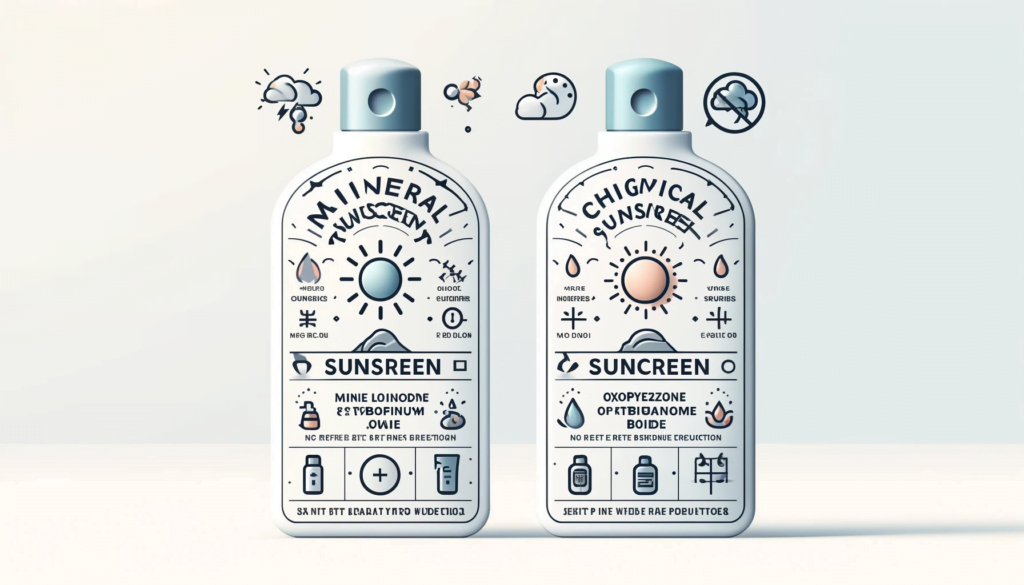
Mineral or Chemical Sunscreen?
Yes, mineral sunscreens can be better for hyperpigmentation than chemical sunscreens, primarily because of the way they work. Here’s an explanation:
Mechanism of Action
Mineral Sunscreens: These contain physical blockers like zinc oxide and titanium dioxide that sit on the skin’s surface and physically block or reflect UV rays away from the skin.
Chemical Sunscreens
These contain organic (carbon-based) compounds like oxybenzone, avobenzone, and octocrylene that absorb UV radiation, convert it into heat, and release it from the skin.
Heat Production
Chemical sunscreens can produce heat as a byproduct when they absorb UV radiation. This heat can potentially exacerbate hyperpigmentation conditions, especially in individuals with darker skin tones who are more prone to hyperpigmentation issues like melasma.
Inflammation
Heat and UV radiation can cause inflammation, which in turn can worsen hyperpigmentation. Since mineral sunscreens primarily reflect UV rays without converting them into heat, they are less likely to cause such heat-induced inflammation.
Sensitivity and Irritation
Mineral sunscreens are generally less likely to cause skin irritation or allergic reactions compared to chemical sunscreens. Sensitive skin that is prone to hyperpigmentation often benefits from the gentler nature of mineral sunscreens.
Mineral sunscreens are often recommended for individuals concerned about hyperpigmentation because they provide effective UV protection without generating heat, reducing the risk of heat-induced pigmentation and inflammation.
